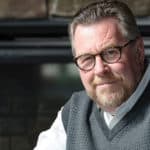 By Steve Wecker
By Steve Wecker
It hasn’t been that long since America went through the Great Depression. My mom has memories of her family of 11 kids, two parents and grandparents all living together in a row home in Lancaster, Pennsylvania—with one bathroom. The generation Tom Brokaw named the Greatest Generation lived during a time when most everyone needed a helping hand. Those who are still with us tend to be thrifty, saving everything from twist ties to rubber bands, and are slow to get rid of belongings—even if they are out of date or don’t work quite like they used to.
Uncertainty about the future created a sense of community. People lived in neighborhoods where everyone knew each other. In Lancaster, we walked everywhere. We played at the neighbor’s house, ate lunch with kids on the street and rode our bikes wherever they would take us. We had paper routes, washed cars and sold lemonade at homemade stands. We got a 50 cent allowance for mowing the lawn, taking out the trash, weeding the gardens and shoveling the snow.
Our parents taught us to help out our neighbors. On snow days, before we could make a nickel in free enterprise, we shoveled our own driveway, the two next door and the driveways of the widow up the street, the friend with a bad back and the elderly couple who lived on a hill.
My dad was my hero and passed away about three years ago. He taught his five kids that if someone needed help, the best thing to do was to show up. Sometimes it was with a bag of groceries, sometimes a tank of gas and sometimes a shovel and a rake. If he asked you how you were doing, he really wanted to know. He never learned to text, and believe me, he never, ever tweeted anyone.
But he cared about others and taught us to do the same. He was the first guy to get the gang organized to help somebody with a project or a need. He wasn’t political, but voted every time he could. And always just when the polls opened. He always maintained that he gave his candidate a head start.
I learned through my dad’s example that he thought the world would be a better place if we spent more time worrying about each other and less time worrying about what we have or want to acquire. He never had much in the way of material belongings, but left a legacy of giving. In these times when we Tweet and Instagram, I’m going to follow dad’s lead. Maybe we should stop pointing fingers and spend a little more time watching out for our neighbors. I know that’s what my dad would want.
Steve Wecker is principle in the Wecker Hospitality Group, which owns several Howard County restaurants, including Iron Bridge and Cured. He adheres to Walt Disney’s principle: “Sometimes it’s fun to do the impossible.”




